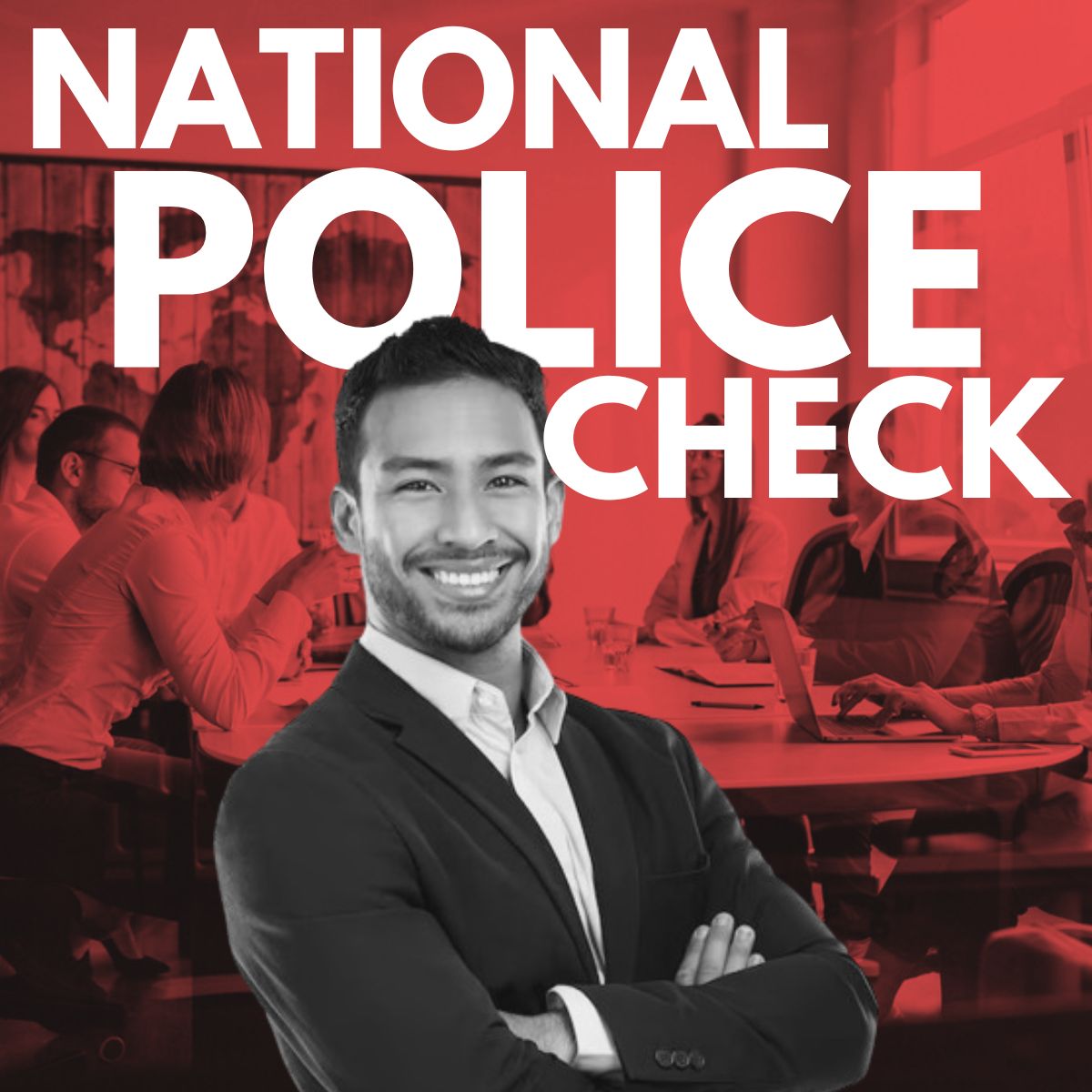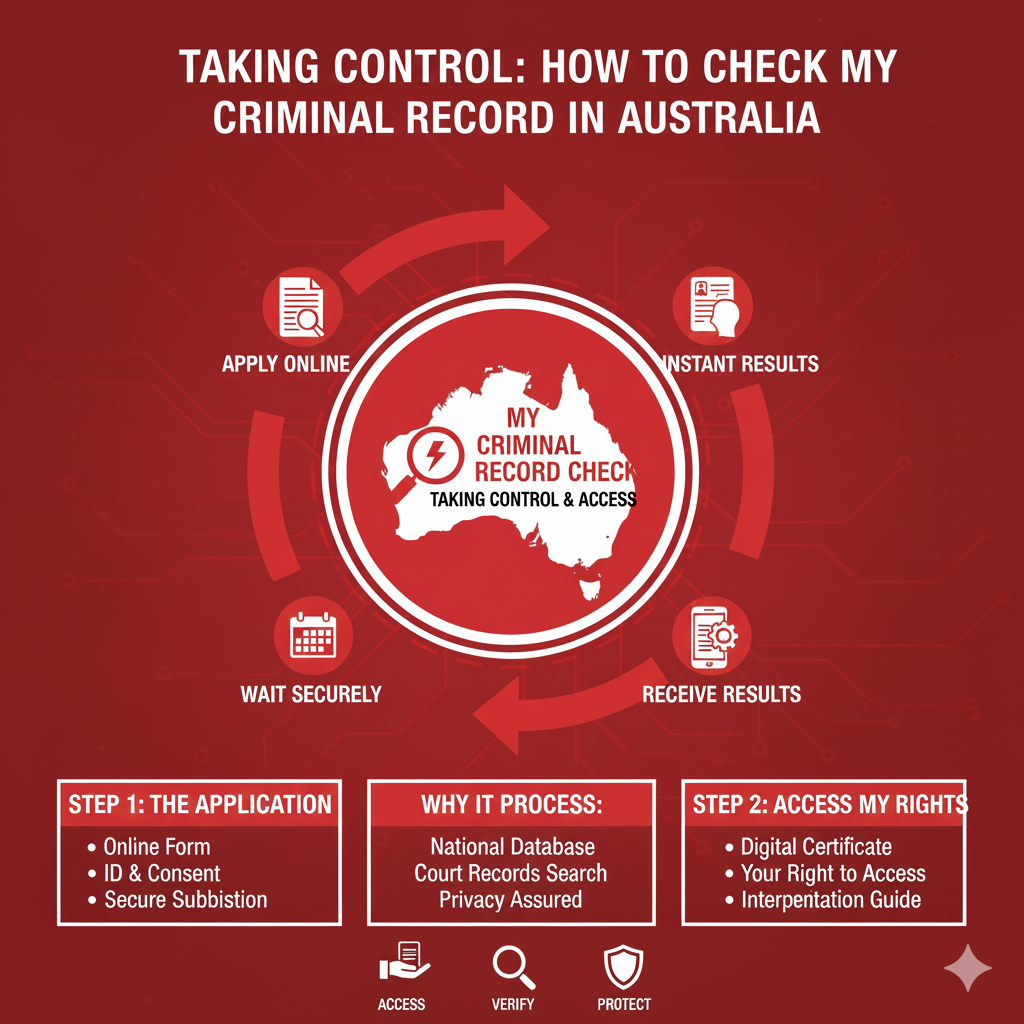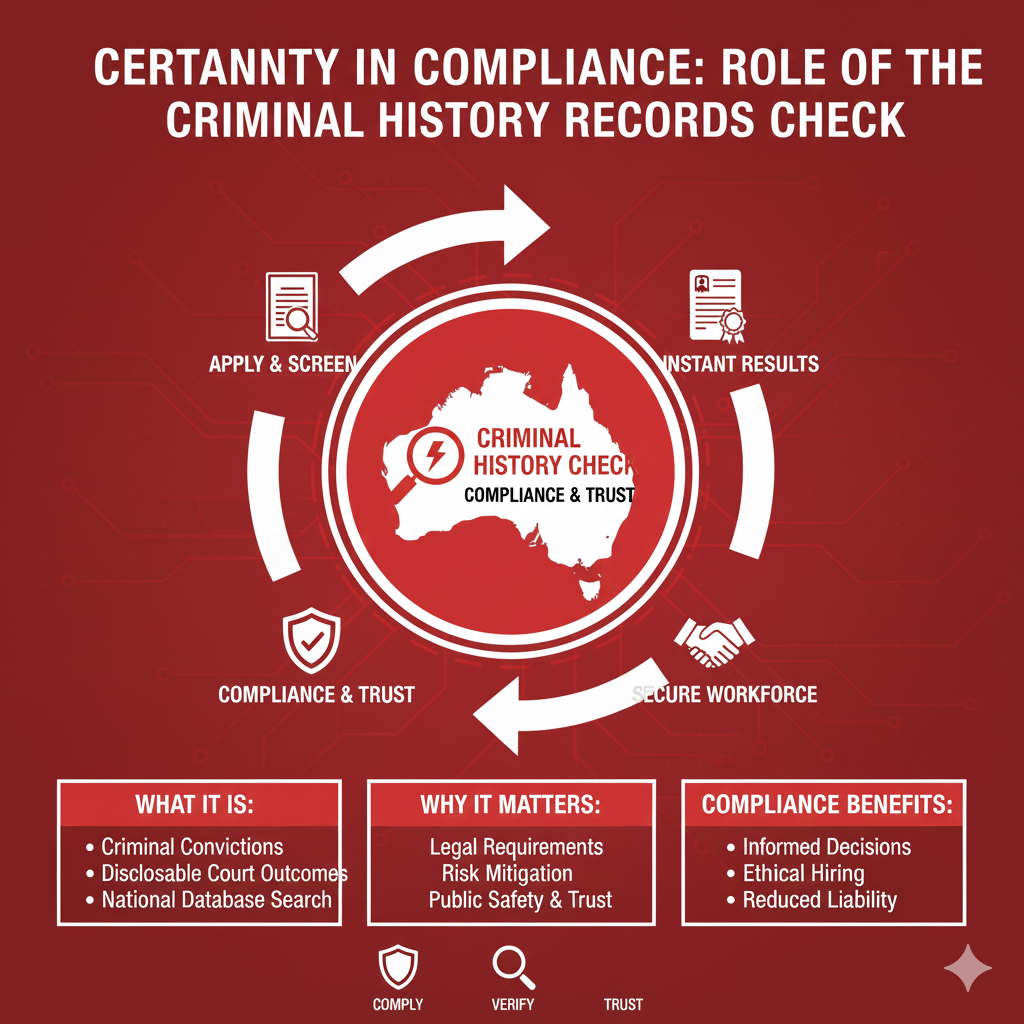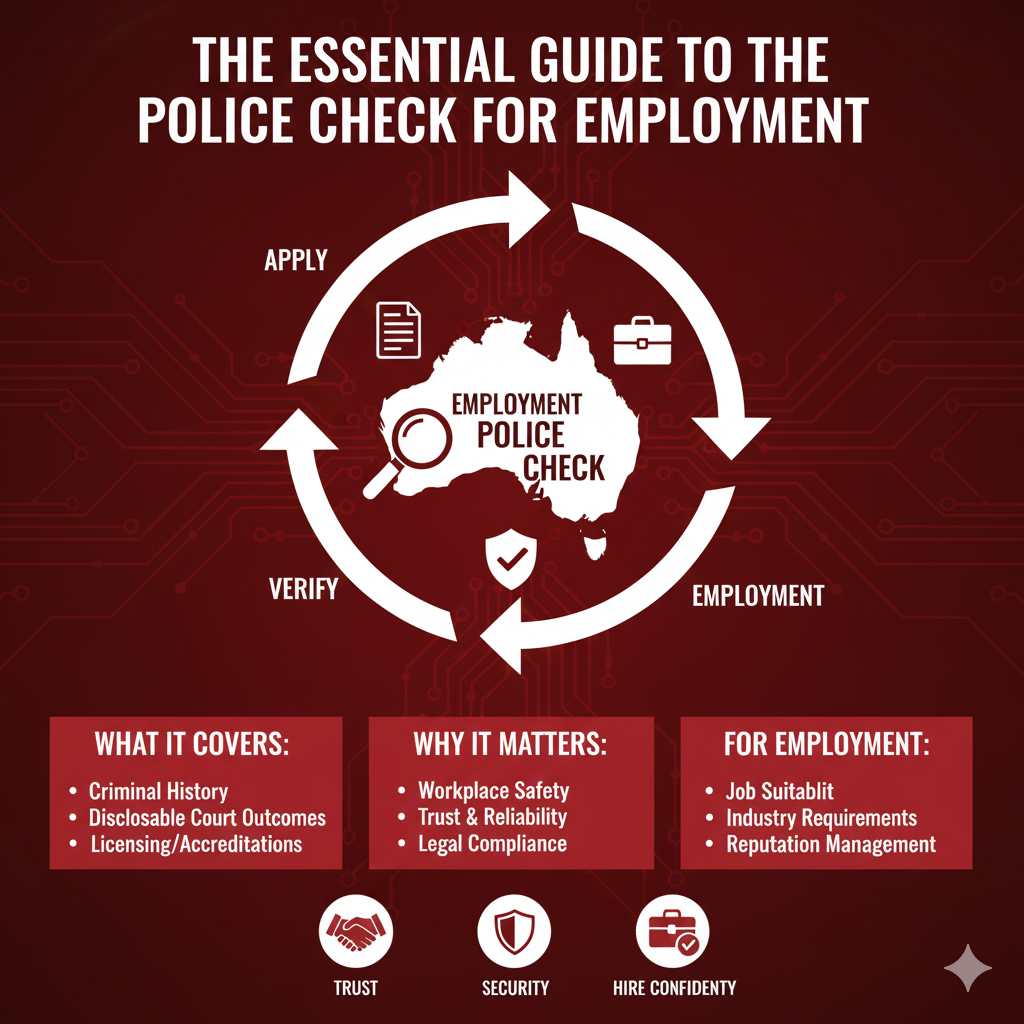Authorities consider national police checks important because they officially search various databases across the country to reveal any criminal history of the person concerned. Experts also assess the importance of national police checks with great meticulousness to provide a full and accurate record of criminal records, ensuring all revealed information is relevant and precise.
What Is a National Police Check?
Employers, volunteer organizations, licensing bodies, and the person himself may use such checks to determine possible risks and ensure safety. This process can be conducted through national police checks online for convenience and efficiency.
Importance of National Police Checks
Employment Screening
It is in employment screening that national police checks find one of their most common applications. Employers want to be assured that persons being recruited into their organizations do not have any undesirable criminal history that would compromise the organization or any of its stakeholders.
There is a paramount importance of national police checks in those categories of jobs that involve handling sensitive information, working with vulnerable populations, or maintaining the reputation of the organization. It provides employers with an informed hiring decision about a person’s past criminal history, relative to the position. Many employers prefer using police checks online to streamline the screening process.
Volunteer Organizations
Many volunteer organizations acknowledge the importance of national police checks to protect their clientele, particularly children, the elderly, and people with disabilities. In most cases, volunteers closely interact with these individuals, so the safety of the clients and their integrity are paramount.
National police checking therefore helps the organizations uphold high safety and integrity standards for their volunteer programs.
Professional Licensing
There are occupations that abide by the importance of national police checks for the pre-licensing of such occupations. This applies to healthcare, education, finance, and other law enforcers. This is used by licensing bodies to ensure the proficiency of individuals in meeting the legal and professional standards set by their profession.
Examples of professionals who need to show a clean criminal history include teachers, nurses, and financial advisers before they are issued with a license or an accreditation. For certain professions, AFP police checks (Australian Federal Police checks) are mandatory to ensure compliance with national standards.
Personal Assurance
Other people can also obtain the national police check for personal reasons, such as when one applies for a visa or even for the adoption of children. One may also want to be at peace concerning their background. Getting a national police check can enable one to confirm the record is accurate and updated. This may be very vital for personal and professional purposes. For convenience, individuals often opt for it as they know the importance of national police checks.
The Process of Getting a National Police Check
Application End
The first step to obtaining a National Police Check in Victoria is filling an application form. This would normally involve writing your full name, date of birth, and address, plus other personal information if deemed necessary.
You might also be asked for some identification documents to check your identity. Having this step will ensure the check is properly done, and results attributed to the right person. If someone is living in New South Wales or Queensland, Rapid Screening does provide location-specific checks tailored to state requirements.
Verification
Once submitted, your identity shall be verified. This basically takes place through a combination of identification documents, either driver’s license, passport, or birth certificate. Other jurisdictions may require biometric data, such as fingerprints, to ensure that the check is very accurate.
Identity verification is important to avoid errors and ensure that it is the correct individual for whom the criminal history report is prepared.
Search and Report
Once this is checked, the national police check is processed. It involves searching several databases that hold records of crimes at the national level. This search will most probably include the police, court, and other relevant records to compile comprehensively a report. The result is one detailing the recorded offenses, with the nature of the crimes, dates, and outcome of legal proceedings.
In the context of the importance of national police checks, this process ensures consistency and accuracy across all regions.
Review
After generating a report, the requesting party or person will then review it. It will show those criminal records found and details of offenses committed. In some cases, if the history is too long and complicated, a summary or an interpretation of results may be included in the report.
It is essential that the information be reviewed in its entirety by the reviewing party so that proper decisions can be made with the help of the actual results. Reviewing what police checks show is crucial for making informed decisions.
Key Considerations
Accuracy and Privacy
Accuracy and privacy are significant in any instance of a national police check. The checks themselves must be conducted as accurately as possible, but it is also applicable that the information disclosed be up-to-date and indicative of the current status of any criminal records.
Privacy regulations protect individuals from having their personal information divulged to unauthorized parties—the outcomes of any check.
Dispute and Correction
Most of the time, in case of errors, there is an appeal process for disputing and correcting mistakes on your national police check report.
This may include additional documentation or explanation for the discrepancies, among other things, in securing a review of information. Mistakes need to be brought to light quickly to ensure accuracy in your report and to correctly reflect your criminal history.
Renewal and Updates
In some circumstances, it would be necessary to keep in mind the importance of national police checks. For example, most employers and institutions need updated checks after a stipulated period to ensure continuity with utmost accuracy.
Similarly, sometimes individuals require updated checks for reasons such as a visa application or registering with a professional body. This ensures that the information is kept current and relevant.
Legal and Ethical Considerations
Police officers must carry out the checks according to the rule of law and the ethics of the police force. They must seek proper consent from the individual being checked and ensure the information is used appropriately and kept confidential.
Organizations or individuals who use criminal history information shall know the corresponding law and regulations for it.
Conclusion
It’s a critical need for safety, integrity, and trust in a wide range of other sectors. Employers, volunteer coordinators, and licensing bodies use them in employment screening, volunteer programs, and professional licensing, or individuals may use them for personal assurance. In any case, these checks reveal important information about a person’s criminal history. Understanding the process, meaning, and key considerations of a national police check provides insight into how to conduct these checks effectively and responsibly.
This ensures accuracy, relevance, and factuality of information related to an individual’s criminal history through a reliable and accredited service provider in obtaining a national police check. The said result would not only be instrumental in making an informed decision but also secure the levels with regard to safety and integrity in personal and professional pursuits.
Should you require a national police check, please ensure to book with a reliable company and complete the procedures required for a report as comprehensive and accurate as possible. This will bring to you peace of mind and the very highest levels of trust and security in every sphere of your life.
Frequently Asked Questions (FAQs)
Q) What is a National Police Check and who needs one?
A National Police Check reviews a person’s criminal history across all Australian states and territories. Employers, licensing bodies, immigration offices, and adoption agencies often request it for jobs, volunteer positions, professional licenses, visa applications, or adoption. Individuals may also obtain one to confirm their own trustworthiness for personal or professional reasons.
Q) How long does it take to get a police check through Rapid Screening?
Rapid Screening completes most National Police Checks within 24 to 48 hours. However, checks that require manual review may take longer, depending on how complex the records are.
Q) Can I get a police check online in New South Wales (NSW) or Queensland?
Yes. You can request a police check online through Rapid Screening’s NSW Police Check and Queensland Police Check pages. The process is fully digital, secure, and meets government compliance standards.
Q) What documents do I need to apply for a national police check?
To complete a police check application, you’ll need valid identification, such as a driver’s licence, passport, birth certificate, and proof of address. These documents help verify your identity during the application process.
Q) Will my police check show spent convictions?
Under Australia’s spent convictions scheme, minor convictions that meet specific criteria (such as being over 10 years old and not resulting in a prison sentence of over 30 months) may not appear on your police check. However, disclosure laws vary by state and purpose of the check.
Q) Is my data secure when I apply through Rapid Screening?
Absolutely. Rapid Screening is an accredited provider that follows strict data privacy protocols. We encrypt and securely store all personal and sensitive information, and share it only with relevant authorities as required.




